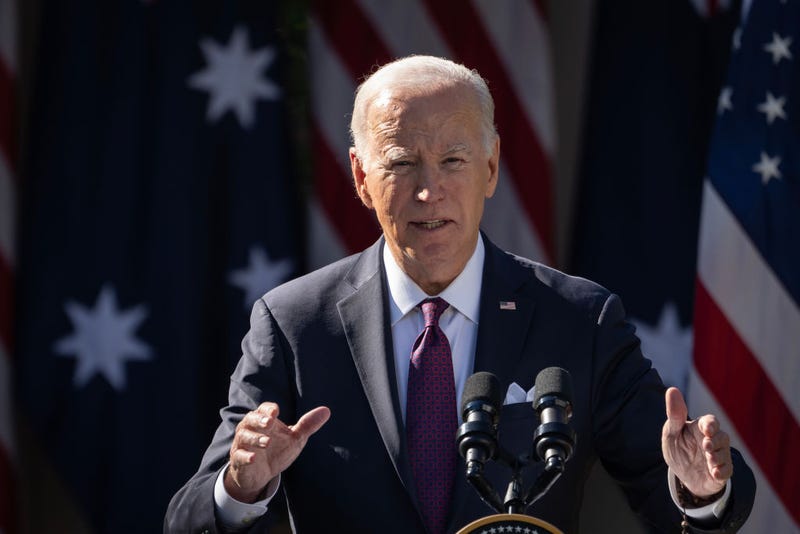
The White House is requesting $56 billion in emergency spending from Congress.
The money would be used for "critical domestic priorities," such as natural disaster relief, child care and expanding high-speed internet for low-income families.
"Additional resources are needed to meet the needs of the American people, support our communities, and protect our nation and its interests," the White House said in a statement. "In order to advance critical domestic priorities and address urgent needs, the Biden-Harris Administration is calling on Congress to provide additional domestic resources."
The largest portion of the aid package -- $23.5 billion -- would be allotted for disaster relief to support "communities facing flooding, extreme heat, catastrophic wildfires, drought, and other severe weather events over the past year."
It includes $9 billion for the Disaster Relief Fund, for FEMA to address ongoing disaster response and recovery efforts, along with funding for specific disaster recovery needs -- including wildfires on Maui, the Guam typhoon, hurricanes in Florida and the southeastern United States, floods in California and Vermont, and tornadoes in Mississippi.
Other funding for disaster response would: address housing and
infrastructure needs caused by major disasters ($2.8 billion); support farmers and ranchers with crop losses from natural disasters ($2.8 billion); repair federal highways and roads damaged in disasters ($634 million); support schools impacted by disasters ($405 million); and supply SBA disaster loans ($127 million).
The aid package also includes $16 billion for an additional year of child care stabilization funding to help keep providers afloat, mitigating the likelihood that providers will close or raise costs for families.
Another $6 billion of the aid package would be used to expand high-speed internet access to low income households through December 2024.
"Affordable, reliable high-speed internet is a necessity for Americans to do their jobs, participate equally in school learning, access health care, and stay connected. But too often, high costs create a barrier and tens of millions of families, students, and seniors are left without access to high-speed internet, or have to sacrifice other necessities to pay their internet bill, exacerbating underlying inequities," the White House said.
The package also includes $7.6 billion to "strengthen our security at home, including by protecting communities at high-risk of attack, safeguarding our communications infrastructure, and strengthening our energy independence."
The administration is also looking to address the fentanyl crisis with $1.55 billion in funding for grants to provide opioid use disorder treatment, evidence-based harm reduction services, overdose prevention measures like naloxone, and recovery support services in all states and territories.
Another $1.05 billion would be used to provide food aid to support emergency needs abroad and farmers at home. Most of the funding, $1 billion, would go to USDA Food for Peace grants to respond to global emergency food needs using food commodities grown in the US by US farmers. The other $5 million would be used for the USDA McGovern-Dole Food for Education program to support school feeding and maternal and child nutrition projects across the globe.
Finally, the package includes $220 million to implement permanent, comprehensive pay reform for wildland firefighters.
"Without congressional action, our nation's heroic Federal wildland firefighters will face a pay cliff starting as soon as November, with salaries being cut by $20,000 or, in some cases, as much as 50% of base pay," the White House said.
This $56 billion package is in addition to the $106 billion requested to provide aid to Ukraine and Israel.
Follow KNX News 97.1 FM
Twitter | Facebook | Instagram | TikTok
